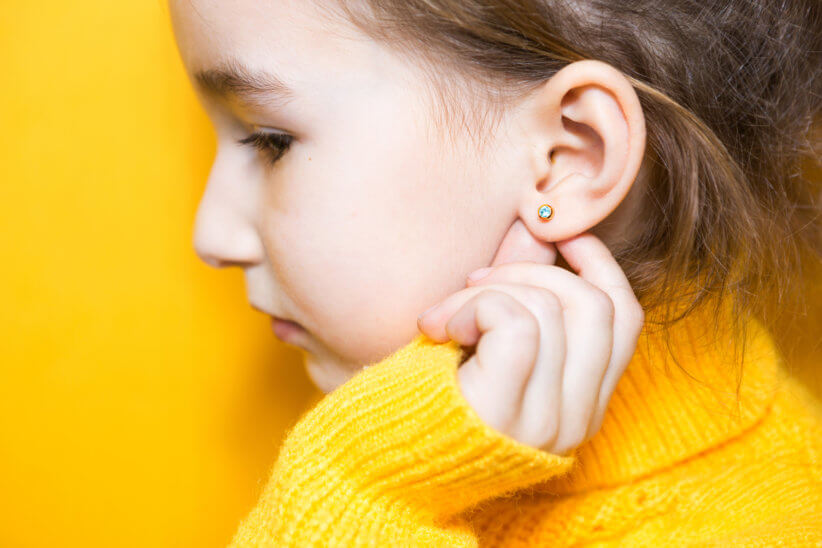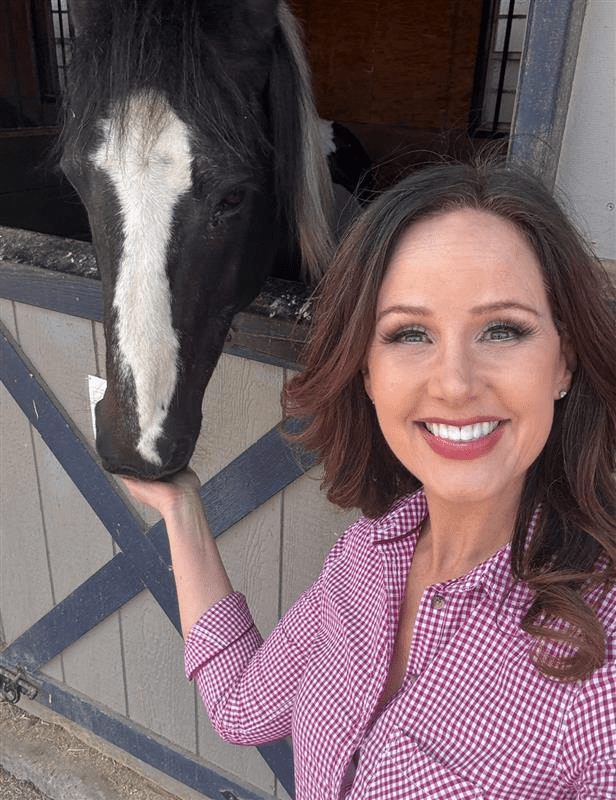
Parents Guide to Safe Piercings
So, your kid wants a piercing. It’s no small decision, and there’s a lot to consider before giving your child the green light. But this discussion with your child doesn’t have to be a battle. We’ve created a guide with all the information you need to make an informed decision and ensure that your child’s piercing is done safely.
We’ve talked to experts on safe piercings to give you all the information you need. Here’s a guide to safe piercings for parents!
Psst… check out Signs Your Child May Be Struggling With Their Mental Health (and the next steps)
Is my child ready for a piercing?
There’s no definite answer or “right” age. Dr. David Levine, professor of pediatrics at the Morehouse School of Medicine, says parents should have an open conversation with their child when making this decision.
“The parent and child need to have a good conversation and the child needs to know that it will hurt for a short time, then feel okay,” Levine says. Levine also says it’s helpful to ask the child why they want one.
Jef Saunders, former Association of Professional Piercers president, says parents should help their child evaluate their lifestyle and whether or not it’s a good idea.
For example, he recommends that clients avoid swimming for eight weeks after a piercing, so this would mean a kid could miss out on things like camp or water parks if done in the summer. In this case, waiting for colder weather would be the right choice.
“I find that most parents really enjoy the opportunity to have these discussions with their children,” Saunders says.
Where should I take my child for a piercing?
Piercing studios should be clean, and the piercer should take some basic precautions like washing their hands, wearing gloves and sterilizing the jewelry and tools used in the process.
“If the piercer has a clean, properly equipped facility, this should make a parent comfortable,” Saunders says.
Saunders says it may also be helpful to ask about a piercer’s training.
“If the piercer has watched a 30 minute ‘training’ video, that’s insufficient in my estimation,” Saunders says. “If the piercer has completed an apprenticeship, attended professional classes, and has taken a keen interest in continuing education, these are great signs you’ve found a professional.”
Above all, you and your child should feel comfortable in the studio. If something in the studio doesn’t seem right, reconsider and look for a new studio.
“I really encourage parents to trust their instincts,” Saunders says. “Especially if they’ve done their homework in advance and things aren’t seeming to line up.”
While piercing guns are popular, there are a number of drawbacks with this method. For example, it takes a “one-size-fits-all” jewelry approach, and many kids don’t fit the jewelry used in this approach.
Additionally, people who operate piercing guns tend to have less training and experience than other piercers.
“Ear piercing guns are often operated by folks who do not have time or training to develop an artistic or aesthetic eye,” Saunders says. “Placement is often misplaced or uneven.”
Most importantly, piercing guns are rarely, if ever, subject to autoclave sterilization. Autoclaves are machines that provide disinfection and sterilization, mostly through steam and pressure.
“This means the tool used to perform the piercing is used over and over again without the cleaning, reprocessing and sterilization process that would happen to piercing tools in a professional setting,” Saunders says.
The Association of Professional Piercers has developed a guide for picking a piercer if you’re looking for more information!
What does aftercare for a piercing look like?
The Association of Professional Piercers has a wealth of information about suggested aftercare.
In general, keeping the pierced area clean is one of the most important things during healing. Your child should wash their hands thoroughly before cleaning or touching their piercing for any reason.
Use a sterile saline (typically branded as wound wash) to rinse as needed. Rinse to remove traces of soap from the piercing, and pat dry with disposable paper products (like paper towel).
Your child should also leave jewelry in at all times, especially during the healing process. Piercings can close or shrink in minutes without jewelry in them. If there needs to be a jewelry change during the healing process, see a qualified piercer for help.
Check out this guide on proper aftercare for piercings shared by Rowan, a company that specializes in providing piercings and has a staff of trained, licensed, and professional nurses. FYI, aftercare instructions should also be provided by your piercer before heading home; some shops even offer aftercare kits for customers with instructions and everything you may need for the first few days.
What are some complications that can come with piercings?
As with many procedures, there are some potential complications that can come with a piercing. It’s important to consider these potential risks when discussing the choice with your child. Here are some risks that are common risks to watch out for:
- Infection at the pierced site. Piercings break the skin’s protective barrier, making infection possible. Belly button piercings are most likely to be infected, but it’s possible at any site on the body. Infections can be treated by keeping the area clean and applying antibiotic medications, like Neosporin. Typically, jewelry doesn’t need to be removed for infections.
- Allergic reactions. Nickel allergies are very common, so jewelry that contains nickel should be avoided. In many cases, an allergic reaction will require that the jewelry be removed.
- Tearing and accidents. These are especially common with ear piercings.
- Keloids. Keloids are thick raised scars that can form while skin is hearing. There are treatment options for keloids, but those prone to keloid formations should think about steering clear of piercings.
How can I reduce these risks?
While infection is always possible, you can reduce the likelihood of complications by choosing a qualified piercer and following the piercer’s aftercare instructions.
It’s also helpful to avoid some common mistakes: don’t change jewelry too soon, don’t touch or play with jewelry healing and avoid swimming for a while to make sure the piercing isn’t exposed to harsh chemicals or contaminated water.
But even with the utmost care, complications happen sometimes. Creating an environment where your child is comfortable coming to you for help with these issues is important.
Dr. Levine says in these cases, keeping communication open is key.
“Value the information and conversation with the kids as they grow and keep asking questions and showing concern,” Levine says. “Every child or teen gets taciturn at times, not forcing them to talk is important for those times.”
Saunders says creating this environment starts before the piercing even happens.
“When a parent explains the responsibility of being pierced, gives an example of what daily piercing maintenance will be, and also lets the child know when to bring their parents attention to an issue, the parent has prepared their child for the experience ahead,” Saunders says.
This can be reinforced by doing occasional check-ins and assisting with aftercare if needed.
“A lot of parents find this to be a really great experience in terms of teaching their children personal hygiene, as well as teaching them when to involve a parent or medical professional in a health issue,” Saunders says.























